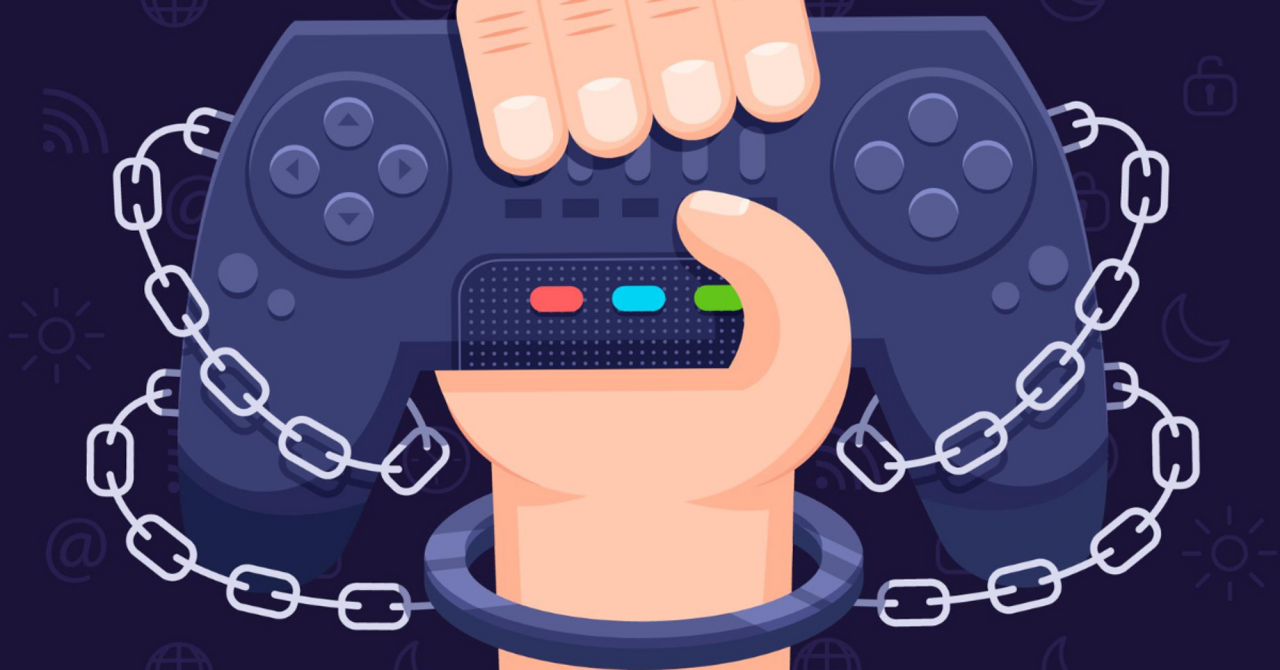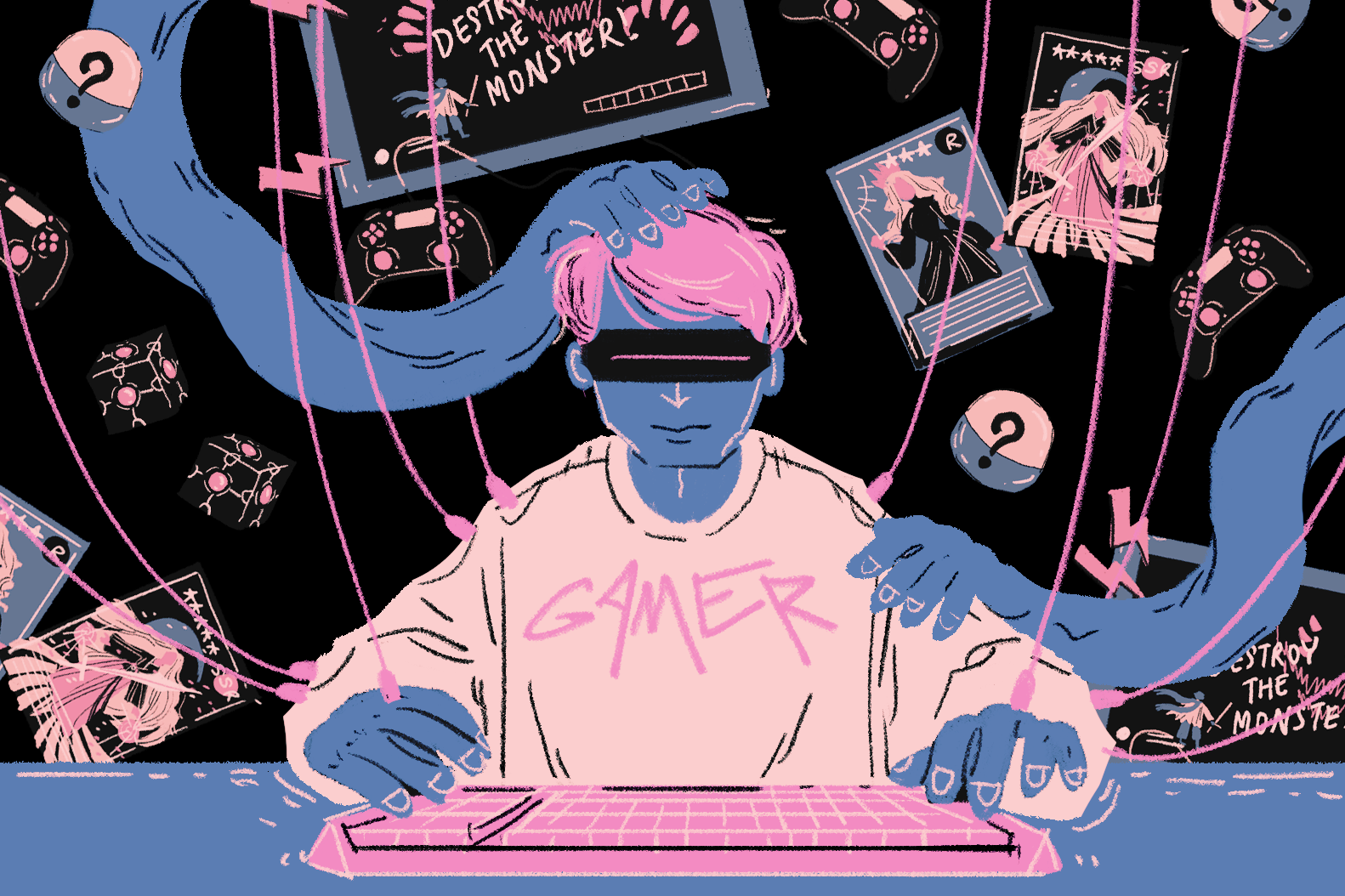The Dark Side Of Esports - Negative Effect Of Gambling In Esports
Esports, or electronic sports, have transformed from a niche hobby to a global phenomenon in just a few decades. With professional leagues, international tournaments, and a projected revenue of over a billion dollars, esports have captured the attention of millions around the world. The allure of competitive gaming has not only drawn in players and fans but has also caught the eye of the gambling industry. Discover the negative effect of gambling in Esports can impact players like you. Let's navigate its risks together and stay safe!
Author:Henrik SchmidtMar 05, 20246K Shares99.9K Views

Esports, or electronic sports, have transformed from a niche hobby to a global phenomenon in just a few decades. With professional leagues, international tournaments, and a projected revenue of over a billion dollars, esports have captured the attention of millions around the world. The allure of competitive gaming has not only drawn in playersand fans but has also caught the eye of the gamblingindustry. Discover the negative effect of gambling in Esportscan impact players like you. Let's navigate its risks together and stay safe!
The Mental Health Impact Of Esports Gambling
Esports gambling has rapidly become a popular pastime among fans, but it's not without its dark side. The thrill of betting on your favorite team or player can quickly spiral into a harmful addiction, with significant mental health repercussions. Understanding the mental health impact of gamblingwithin esports is crucial, especially as the industry continues to grow.
Signs Of Problematic Esports Betting Behavior
Recognizing the signs of problematic betting behavior is the first step in addressing the negative impact of gambling in esports. Here are some red flags that may indicate a deeper issue:
- Spending more time and money on bettingthan intended
- Chasing losseswith more gambling in an attempt to recover lost money
- Neglecting responsibilitiesand hobbies in favor of gambling
- Experiencing mood swingsrelated to gambling wins and losses
- Hiding gambling activitiesfrom friends and family
- Feeling unable to stop or controlthe gambling behavior
These behaviors can be particularly concerning in young people, who may lack the experience or resources to deal with the consequences of their actions.
The Link Between Gambling Addiction And Mental Health Issues
Gambling addiction, also known as problem gambling or gambling disorder, can lead to a range of mental health issues. It's a condition that can consume a person's life, causing distress and impairment in daily functioning. Here's how it can affect mental health:
- Increased stress levels: The pressure to win and the fear of losing can create a constant state of stress.
- Anxiety: Worrying about debts and the potential to lose more money can lead to anxiety disorders.
- Low self-esteem: Repeated losses and the inability to stop gambling can erode a person's self-confidence.
- Mood disorders: The highs of winning and the lows of losing can contribute to mood swings and disorders like depression.
Co-occurring Disorders: Anxiety, Stress, And Depression
Problem gambling rarely exists in isolation. It often co-occurs with other mental health disorders, creating a complex web of challenges for the individual. Here are some common co-occurring disorders:
- Anxiety: Gamblers may experience anxiety over potential losses, the consequences of their gambling, or the stress of living a double life.
- Stress: The constant pressure to win back losses and the impact on personal and financial life can lead to chronic stress.
- Depression: The hopelessness and guilt associated with gambling addiction can trigger depressive episodes.
These mental health issues can create a vicious cycle, where the individual gambles to escape their problems, only to exacerbate them further. It's essential for friends, family, and the individuals themselves to recognize these signs and take action.
The negative impact of gambling in esports is a growing concern, particularly as the industry continues to attract a younger audience. By understanding the mental health implications and recognizing the signs of problematic behavior, we can work towards creating a safer and more responsible gaming environment.
The Social And Financial Consequences Of Gambling In Esports
Esports has transformed from a niche hobby to a global powerhouse, attracting millions of fans and players. However, with the rise of esports betting and skin gambling, a darker side of this digital sporthas emerged. The negative effects of gambling within the esports community, particularly among young people, are becoming increasingly apparent. These effects are not just limited to mental health, but also extend to social and financial aspects of life.
Strained Relationships And Social Isolation
Gambling in esports can lead to significant social consequences. As individuals become more engrossed in betting, they may start to prioritize gambling over relationships with friends and family. This can lead to:
- Decreased social interaction: Spending excessive time gamblingcan reduce the time spent on social activities and maintaining relationships.
- Conflict with loved ones: Arguments may arise over the gambler's behavior, leading to strained relationships.
- Isolation: In severe cases, the individual may withdraw from their social circle entirely, leading to isolation and loneliness.
The impact on young people's social lives can be profound, as they may miss out on important experiences and connections during their formative years.
Financial Distress And The Cycle Of Chasing Losses
The financial repercussions of gambling in esports are often severe and can lead to a destructive cycle. Young gamblers may find themselves in situations where they:
- Spend beyond their means: Money that could be used for education, savings, or other important expenses is instead used for betting.
- Incur debts: To continue gambling, some may borrow money or use credit, leading to debt.
- Chase losses: In an attempt to recover lost money, individuals may gamble more, often leading to even greater losses.
This cycle can be particularly devastating for young people who may not have the financial literacy or resources to manage such situations effectively.
Academic And Career Disruptions
The negative effects of gambling can also extend to academic and career aspirations. Young people engaged in excessive gambling may experience:
- Decreased academic performance: Time spent gambling can detract from studying and attending classes, leading to poor academic results.
- Loss of scholarships or opportunities: Gambling-related issues can lead to the loss of academic or athletic scholarships and other opportunities.
- Career setbacks: Long-term gambling issues can impact professional development and career progression.
For young esports enthusiasts, the consequences of gambling can derail their future plans and limit their potential.
The intersection of esports and gambling has created a new set of challenges for the gaming community, particularly for its younger members. The social and financial consequences of gambling can have long-lasting effects, impacting relationships, financial stability, and future opportunities. It's crucial for the community to recognize these risks and work towards creating a safer environment for all players.
The Unique Vulnerabilities Of Young Gamblers
The world of esports has captivated the attention of young people globally, with its high-octane competitions and the allure of gaming fame. However, this fascination has a darker aspect, as the lines between gaming and gambling become increasingly blurred. Young gamers, often competitive and tech-savvy, are particularly susceptible to the risks associated with gambling in esports. Understanding these vulnerabilities is crucial in safeguarding the well-being of our youth.
The Appeal Of Gambling To Competitive And Tech-Savvy Youth
Young people are naturally drawn to the excitement and competition that esports offer. The thrill of victory and the agony of defeat play out on digital battlegrounds, mirroring the highs and lows of traditional sports. This competitive spirit can sometimes extend beyond gameplay into the realm of gambling, where the stakes are real and the outcomes are uncertain.
Tech-savvy youth are especially at risk because they are comfortable navigating online platforms where esports betting and skin gambling are readily accessible. They are adept at using technology to engage with the esports community, which includes exposure to gambling activities. The digital nature of both gaming and gambling means that for young people, participating in one can seamlessly lead to the other.
The Blurred Lines Between Gaming And Gambling
In the world of esports, the distinction between gaming and gambling is not always clear. In-game incentives, such as skins – virtual items with real-world value – can be used as a form of currency for betting. This practice, known as skin gambling, is particularly insidious because it does not feel like traditional gambling. Instead, it is woven into the fabric of the gaming experience, making it harder for young people to recognize the potential for addiction.
The integration of gambling-like mechanics in games, such as loot boxes, further complicates the issue. These features, which offer random rewards and require payment, resemble gambling and can trigger the same psychological responses. For young gamers, these mechanics can serve as an introduction to gambling behavior, often without their full understanding of the risks involved.
The Role Of Accessibility And In-Game Incentives
Accessibility is a significant factor in the vulnerability of young gamblers. Esports and gambling platforms are available 24/7, with few barriers to entry. Young people can gamble anonymously, without the age verification processes that are standard in physical casinos. This ease of access increases the likelihood of young individuals engaging in gambling activities, often without the knowledge or supervision of adults.
In-game incentives play a pivotal role in enticing young gamers to participate in gambling. These rewards, whether they are skins, loot boxes, or other virtual items, have a tangible appeal. They are often marketed as enhancing the gaming experience or offering a competitive edge, which can be particularly enticing to young, ambitious gamers. The desire to obtain these items can lead to spending money on gambling activities, with the hope of winning or earning more valuable rewards.
The intersection of esports, technology, and gambling creates a perfect storm for young people, who may not have the experience or judgment to navigate these waters safely. By understanding the unique vulnerabilities of young gamblers, we can begin to develop strategies to protect them from the negative effects of gambling in esports. It is essential to promote responsible gaming and betting practices, recognize the warning signs of problematic behavior, and provide resources and support for those affected. Only through awareness and proactive measures can we hope to mitigate the dark side of esports and preserve the integrity of gaming for future generations.
The Global Impact
In the ever-evolving landscape of digital entertainment, online casinos have emerged as a popular and enjoyable hobby on a global scale. Initially taking root in Europe and the USA, these virtual gaming platforms have rapidly expanded their reach, now captivating audiences across continents, including Africaand notably, Nigeria, we suggest to read an article from StationZilla about this topic.
Simultaneously, the rise of esports has added another layer to the dynamic realm of digital entertainment. Esports, competitive video gaming at a professional level, has garnered immense popularity, becoming a global phenomenon. As the esports craze sweeps across nations, the synergy between online casinos and esports is apparent. Both represent facets of the evolving digital entertainment landscape, capturing the enthusiasm of diverse audiences and shaping the way people engage with leisure activities in the modern era.
Negative Effect Of Gambling In Esports - FAQs
What Are The Negative Impacts Of Gambling?
- Financial Consequences:Gambling can lead to significant financial losses, causing economic hardships for individuals and their families. Compulsive gambling may result in debt, bankruptcy, and financial instability.
- Mental Health Issues:Problem gambling is associated with mental health disorders such as depression, anxiety, and stress. High-stakes gambling can lead to intense emotional highs and lows, contributing to mental health challenges.
- Social Isolation:Excessive gambling may lead to social withdrawal as individuals become preoccupied with gambling activities. Relationships with family and friends can suffer due to neglect and strained interactions.
- Legal and Legal Consequences:Problem gambling can lead to legal issues, including criminal charges related to theft or fraud to fund gambling habits. Individuals may face legal consequences if caught engaging in illegal gambling activities.
- Impact on Employment:Compulsive gambling can result in job loss due to absenteeism, decreased productivity, or unethical behaviors at the workplace. Employment stability may be compromised as a result of gambling-related issues.
What Are The Effects Of Gambling And Gaming?
- Positive Social Interactions:Gaming can foster positive social interactions, especially in multiplayer online games. Virtual communities and friendships can develop, providing a sense of belonging and camaraderie.
- Cognitive SkillsDevelopment:Certain games require strategic thinking, problem-solving, and decision-making, contributing to cognitive skill development. Gaming platforms often offer educational games that enhance learning in various subjects.
- Escapism and Addiction Risk:Excessive gaming may serve as a form of escapism, potentially leading to neglect of real-life responsibilities. Video game addictioncan result in negative consequences similar to other behavioral addictions.
- Physical Health Impacts:Prolonged gaming sessions may contribute to sedentary lifestyles, leading to health issues such as obesity and musculoskeletal problems. Sleep disturbances can occur, affecting overall physical well-being.
- Violent Behavior Concerns:Some studies suggest a correlation between violent video games and aggressive behavior, although the causation is debated. Parents and guardians may have concerns about the impact of violent content on children and adolescents.
What Are The Negatives Of Esports?
- Sedentary Lifestyle:Professional esports players often spend extended hours practicing and competing, leading to a sedentary lifestyle. Lack of physical activity may contribute to health issues such as obesity and related conditions.
- Mental Health Challenges:The intense pressure and competitive nature of esports can lead to stress, anxiety, and burnout among players. Social isolation may occur as players devote extensive time to training and competition.
- Addiction and Dependency:Excessive involvement in esports can lead to addiction, with players spending disproportionate amounts of time on gaming. Dependency on the virtual world may negatively impact real-world relationships and responsibilities.
- Limited Career Longevity:The career span of a professional esports player may be limited due to the physical and mental demands of competitive gaming. Retirement from professional esports can pose challenges in transitioning to other career paths.
- Negative Stereotypes:Esports can face negative stereotypes, with some people dismissing it as a legitimate career or sport. Misconceptions about gamers and esports culture may contribute to societal biases.
Conclusion
The rise of esports has brought with it exciting opportunities, but it's important to remain vigilant about the potential risks. By understanding the dangers, recognizing the signs of trouble, and knowing where to find help, the esports community can work together to ensure that gaming remains a positive and enjoyable experience for everyone involved.

Henrik Schmidt
Author
Henrik Schmidt is a dedicated writer focusing on sports, betting, and various entertainment aspects related to the sporting world. With a passion for exploring the intersections of sports and entertainment, Henrik brings a unique perspective to his articles. His expertise in these areas ensures that readers receive informative and engaging content, making him a valuable contributor to the sporting community.
Latest Articles
Popular Articles



